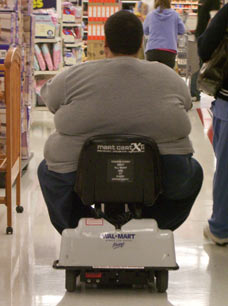Stick to the list to waste the waist
 Obesity remains one of the major public health challenges internationally, with weight-loss quick-fixes arriving at a constant rate, but rarely sticking around long enough to help.
Obesity remains one of the major public health challenges internationally, with weight-loss quick-fixes arriving at a constant rate, but rarely sticking around long enough to help.
A new study from Victoria’s Monash University has shown one behavioural change which may prove decisive in the battle of the bulge. The suggestion is simple: planning meals down to the details, writing a specific list and most importantly – sticking to the list in the face of special deals and impulse buys.
The new study on shopping pre-commitment solidifies previous findings that planning meals and sticking to a list can lead to an extra 0.67kg lost per month, when combined with other behavioural changes.
The study has found that the weight loss, although small, helps improve quality of life and reduce medical bills.
Researchers say planning meals and using lists may be the cost-effective weight-loss tool that gets obese Australians back on the healthy side of the line.
Dr Nicole Au is a Research Fellow in the Centre for Health Economics at Monash University who collaborated with Associate Professor Duncan Mortimer; Senior Research Fellow in the Centre for Health Economics at Monash University.
The team conducted various trials and field experiments to test the health policy applications of the relatively new discipline of ‘behavioural economics’.
“Behavioural economic strategies draw on social, cognitive and emotional factors to ‘outsmart’ our impulsive tendencies and overcome poor habits which prevent us from achieving our goals,” the researchers said.
Similar behavioural changes are already helping people make better financial decisions and break the cycle of addiction.
The duo says the behavioural economics of food-buying should be employed to change the way supermarkets are laid out. Currently stock is placed and arranged in order to maximise time spent in store, placing expensive items in better view and generally increase profitability.
The team has suggested altering the layouts to make healthier foods more prominent and designing menus so that healthier options are at the top or the bottom of the list to encourage healthier meal choices.
Overall the researchers say greater investment is required to change the way society feeds itself, to intervene on the burgeoning belt-sizes of the population.








 Print
Print